THE DIVINE NINE
The Divine Nine: History of Black Sororities and Fraternities
Black Greek-letter organizations have made a deep impact on Black American culture. Learn more about the fraternities and sororities that started it all.
– Sydney Clark
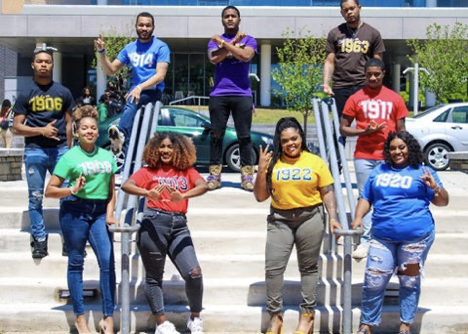
The Divine Nine consist of the nine recognized Black Greek-letter organizations, which are members of the National Pan-Hellenic Council.
Each group has different principles and missions that drive their members.
Members of the Divine Nine were influential in the American Civil Rights movement of the 1950s and 60s.
These organizations have a rich history and a legacy that still impacts modern culture.
The Divine Nine is the nickname of a group of nine historically Black Greek-letter organizations called the National Pan-Hellenic Council (NPHC). These nine organizations have a significant place in Black American history and culture.
Collectively, these organizations comprise nearly 4 million members. These organizations are a source of family and community to many Black students, with some first-generation members and others joining as a legacy.
The Divine Nine organizations have been around since the early 1900s and have contributed greatly to Black American culture. They are committed to public service, scholarship and brother- and sisterhood. These traditions have trickled down through generations of members and even infiltrated pop culture. The Divine Nine’s impact on Black American life and culture is apparent.
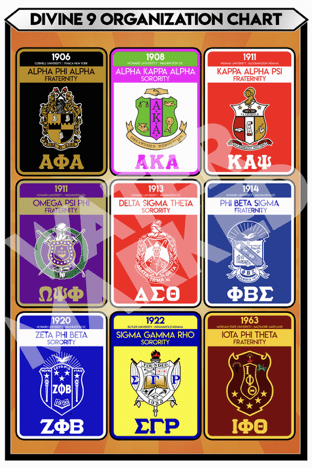
Which Greek-Letter Organizations Are Part of the Divine Nine?
The Divine Nine comprises nine organizations in total, each with a different purpose and attributes. Here is a short breakdown of each.
Alpha Phi Alpha Fraternity, Inc.
With the aim of manly deeds, scholarship, and love for all mankind, Alpha Phi Alpha fraternity is the first intercollegiate Greek-letter organization founded for Black men in the United States. Seven students at Cornell University started the organization on December 4, 1906. It started out as a study group.
Alpha Kappa Alpha Sorority, Inc.
Alpha Kappa Alpha Sorority, whose members are also known as the Ivies, is the oldest established Greek-letter organization for Black women.
The organization started at Howard University on January 15, 1908. They aim to be of service to all mankind.
Delta Sigma Theta Sorority, Inc.
This organization focuses deeply on community service, with special emphasis on serving the Black community. Delta Sigma Theta, founded on January 13, 1913, at Howard University, aims to provide assistance and support through established programs in local communities throughout the world.
Kappa Alpha Psi Fraternity, Inc.
Also known as the Nupes, Kappa Alpha Psi has been dedicated to brotherhood and service in the Black community since its founding on January 5, 1911, at Indiana University Bloomington. It has two names, the other being Phi Nu Pi. The fraternity’s motto is Achievement in Every Field of Human Endeavor.
Omega Psi Phi Fraternity, Inc.
Founded on November 17, 1911, at Howard University, this organization is based on four principles: Manhood, Scholarship, Perseverance, and Uplift. Omega Psi Phi aims to elevate its members and the Black community.
Phi Beta Sigma Fraternity, Inc.
The only NPHC member fraternity with a constitutionally-bound sister Greek-letter organization — Zeta Phi Beta — Phi Beta Sigma’ was established on January 9, 1914, at Howard University. Its mission focuses on community service, building brotherhood, and promoting scholarship.
Zeta Phi Beta Sorority, Inc.
The sister organization to Phi Beta Sigma, Zeta Phi Beta sorority’s ideals include Scholarship, Service, Sisterhood and Finer Womanhood. Zeta Phi Beta, founded on January 16, 1920, at Howard University, prides itself on achieving a legacy of excellence.
Sigma Gamma Rho Sorority, Inc.
Sigma Gamma Rho is the only Black sorority founded at a predominantly white institution, Butler University in Indiana. Founded on November 12, 1922, its mission is to better women’s lives through community service, civil, and social action.
Iota Phi Theta Fraternity, Inc.
Founded during the Civil Rights movement on September 19, 1963, at Morgan State University, Iota Phi Theta fraternity was the last member admitted to the NPHC. They have a long history of social service. The organization is dedicated to making meaningful contributions to society, with special emphasis on doing so in the Black community.
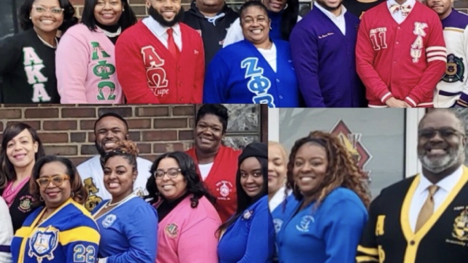
The History of the Divine Nine
Now known nationally and internationally, the Divine Nine have a long and rich history cultivated over decades of growth.
Sororities and Fraternities for Black Students
Initially, fraternities in the United States, like the institutions of higher learning in which they were founded, were exclusively for white male students. Women created sororities in response to the fraternities’ refusal to admit them. Subsequently, when Black students began to enroll in universities, they faced the same issue. So, they created the first Black Greek-letter organizations in response to the racism Black students experienced on campuses.
After the establishment and popularization of historically Black colleges and universities (HBCUs) in the United States, Black fraternities and sororities followed. The organizations began out of fellowship and shared principles rather than as a direct response to racist beliefs and practices. Howard University, in particular, was the founding site for five of the Divine Nine. These organizations quickly spread to other universities in the coming decades, including at primarily white institutions (PWIs).
Black Greek Organizations Formed the NPHC
Howard University students founded the National Pan-Hellenic Council (NPHC) — not to be confused with the National Panhellenic Conference — in 1930 to spark unity and protect the members’ collective interests.
Though some members of NPHC were at HBCUs, others were not and needed a place to ensure their institutions would treat them fairly. The council’s formation ensured that members would have a say on their respective campuses.
The Divine Nine’s Civil Rights Legacy
Black Greek-letter organizations like the Divine Nine have been historically significant for many reasons, including involvement in the Black Arts movement, the Civil Rights movement, the Black Power movement, and most recently, Black Lives Matter. As organizations committed to serving the Black community, these organizations’ missions easily fell in line with the movements’ missions.
Many members of Divine Nine organizations were pivotal figures in the Civil Rights movement, including but not limited to:
- Martin Luther King Jr. (Alpha Phi Alpha)
- Jesse Jackson (Omega Psi Phi)
- Ralph Abernathy (Kappa Alpha Psi)
- Hosea Williams (Phi Beta Sigma)
- Bobby Rush (Iota Phi Theta)
- Coretta Scott King (Alpha Kappa Alpha)
Chapters themselves were also important to the movement, as they formed connections with organizations like the National Association for the Advancement of Colored People (NAACP) and the Southern Christian Leadership Conference (SCLC).
Impact on Pop Culture
The Divine Nine has also had a deep influence on Black American culture. They are a staple of Black collegiate life, and variations of Black Greek-letter organizations often appear as pop culture references in media. Shows like A Different World and movies like Stomp the Yard (though not without some controversy) showcase how truly influential these organizations are in pop culture.
Additionally, the overall culture of Black Greek-letter organizations shines through in other pop culture moments, like Beyonce’s historic 2018 Coachella performance in which she stylized her own Black Greek-letter organization, Beta Delta Kappa.
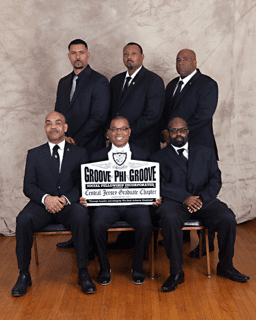
Groove Phi Groove Social Fellowship, Inc. (GΦG)
A social fellowship. It was founded at Morgan State College (now known as Morgan State University) as an alternative to mainstream historically black fraternities.
Groove Phi Groove was founded on October 12, 1962, by a group of young black men who wanted to create an alternative to what was described as the traditionalism of subjectively ascribed established fraternal organizations.
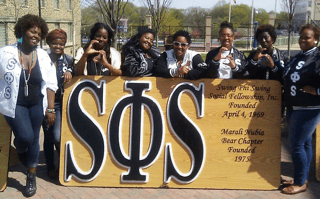
Swing Phi Swing Social Fellowship, Inc. (SΦS)
A non-profit social fellowship, as opposed to a traditional Greek lettered sorority. It was founded as an alternative to historically Black sororities.
Swing Phi Swing was founded at Winston Salem State University in Winston-Salem, North Carolina, at the conclusion of the Civil Rights Movement and the burgeoning of the Black Power Movement. Twelve African-American women, with the help of their brother organization Groove Phi Groove, founded Swing Phi Swing on Friday, April 4, 1969, on the one-year anniversary of the assassination of Dr. Martin Luther King, Jr. At a time of social unrest, these twelve young women created an organization that would honor the trailblazers of the Civil Rights Movement and their legacy.
These women dared to be different by challenging the traditional membership in Black Greek-Lettered organizations and chose to create a fellowship of women committed to meaningful community service, promoting and achieving academic excellence, and strengthening community involvement and engagement through culturally conscious events and activities. Swing Phi Swing ignited a flame that influenced thousands of women to follow in their footsteps. Their pioneering spirit continues to burn in the hearts of many Sisters, transcending the boundaries of geography, social class, complexion, and religious affiliation. Today, Swing has over 50 graduate and undergraduate chapters throughout the United States.

“WHEN YOU KNOW YOUR HISTORY, NOTHING IS AS SIMPLE AS IT SEEMS”
The Answer Man (Thaddeus Howze)














